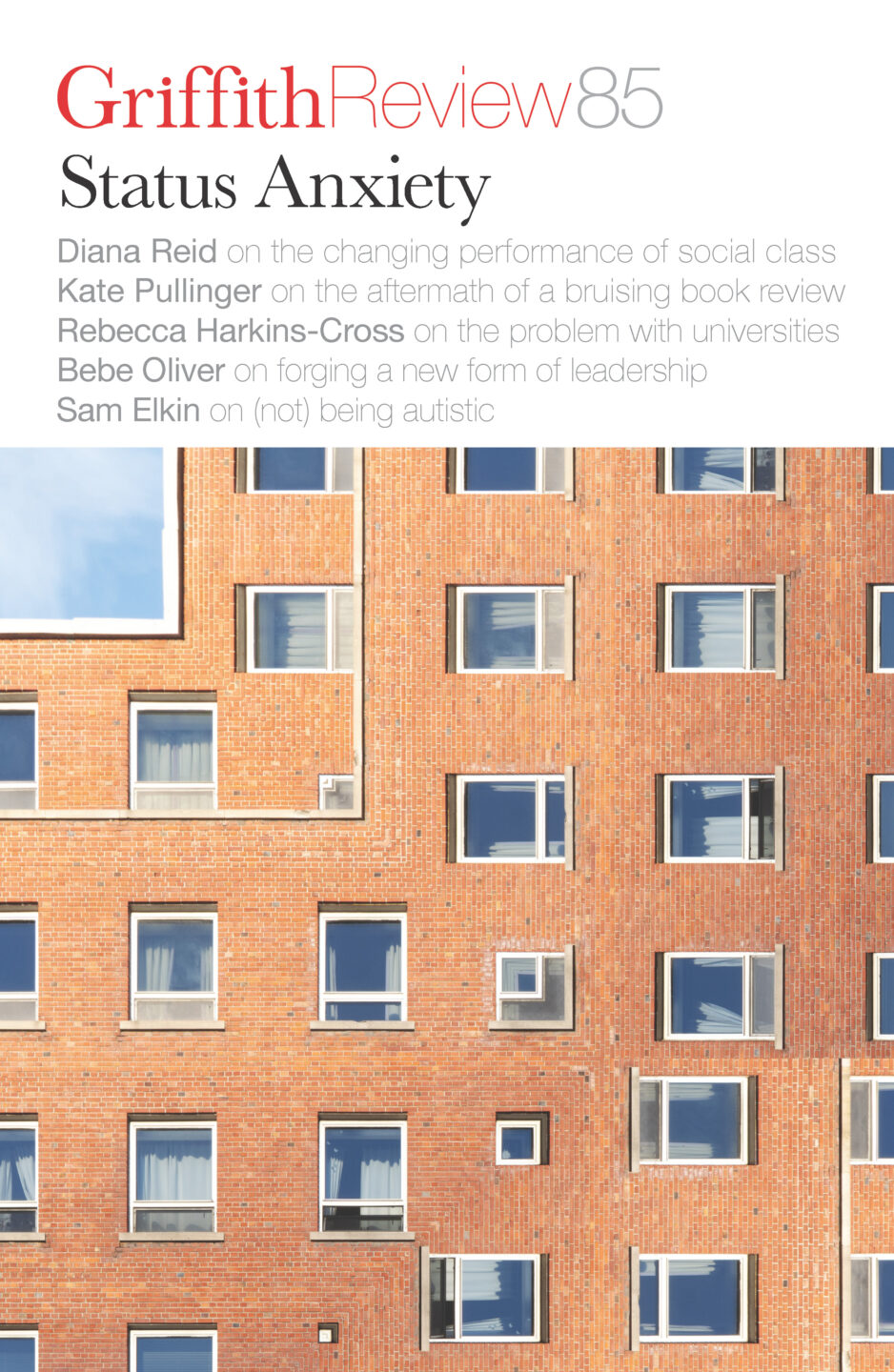Featured in

- Published 20240806
- ISBN: 978-1-922212-98-6
- Extent: 216pp
- Paperback, ePUB, PDF


Already a subscriber? Sign in here
If you are an educator or student wishing to access content for study purposes please contact us at griffithreview@griffith.edu.au
Share article
More from author

The geography of respect
Non-fictionStarting in 2019, Parks Victoria closed or restricted access for climbers to much of Gariwerd-Grampians while it assessed cultural heritage and worked with Traditional Owners and conservation experts to develop the Greater Gariwerd Landscape Management Plan (GGLMP). These closures drew strong reactions from many climbers. They saw Parks Victoria’s actions as impinging on their rights, and its apparent focus on climbing as a risk to cultural heritage and environmental integrity as overblown.
More from this edition

The great divide
In ConversationIn the ’80s, and maybe the early ’90s, fashion was a political statement just like art was…and real art wasn’t about selling out or succeeding in a mainstream context; it was the opposite. The whole idea was that you didn’t want to conform. Anyone who was trying to make money off your art or helping you make money was corrupt or compromised. The last thing you did as an artist or a writer in the ’80s was self-publicise – it was so naff, it wasn’t done. Street cred was what mattered. And I’ve been watching, with social media and the internet, this 180-degree shift over the last few decades.

When adults are at risk
Non-fictionOne significant subset of our modern adult-safeguarding environment is elder abuse, which we know is a significant and under-reported problem. In 2021 the Australian Institute of Family Studies released the results from the first-ever broad survey of elder-abuse prevalence in Australia. This showed that 14.8 per cent of adults aged sixty-five and over had suffered abuse in the previous twelve months. Importantly, only a little more than one third of people who experienced abuse sought help.

High life
FictionWe’ve just finished one of the longest and hardest shifts of the year, and we are too tired to leave the building. It’s Christmas Eve, a 35-degree night, and we survived three dinner seatings while being two people down. We also all worked a double, and our staff meal was the butt ends of bread choked down with blood-temperature water while polishing cutlery. Every single person we served was tired, stressed, sick of spending money and not looking forward to seeing their in-laws. They also all wanted dressing on the side, no garlic and everything gluten free, but to also have multiple serves of the pasta of the day.